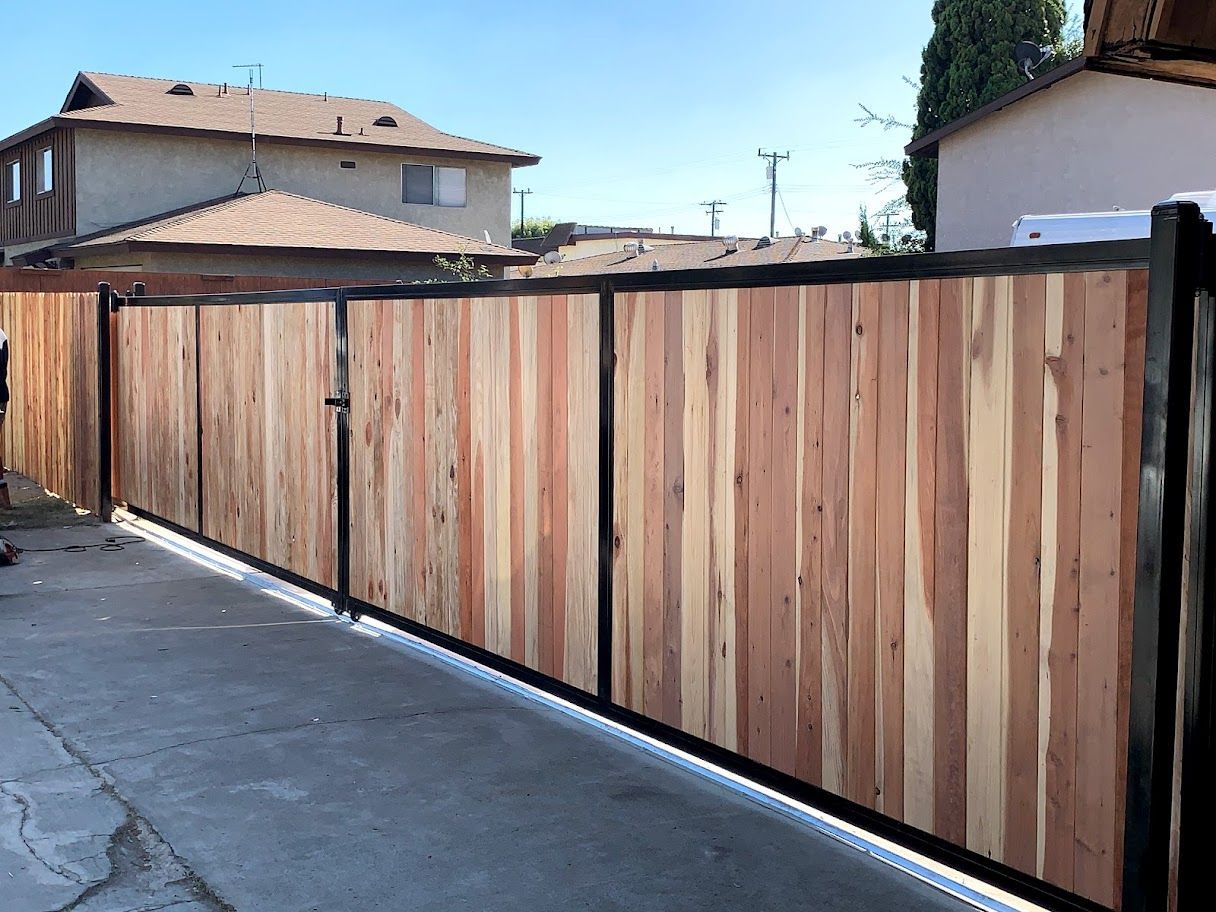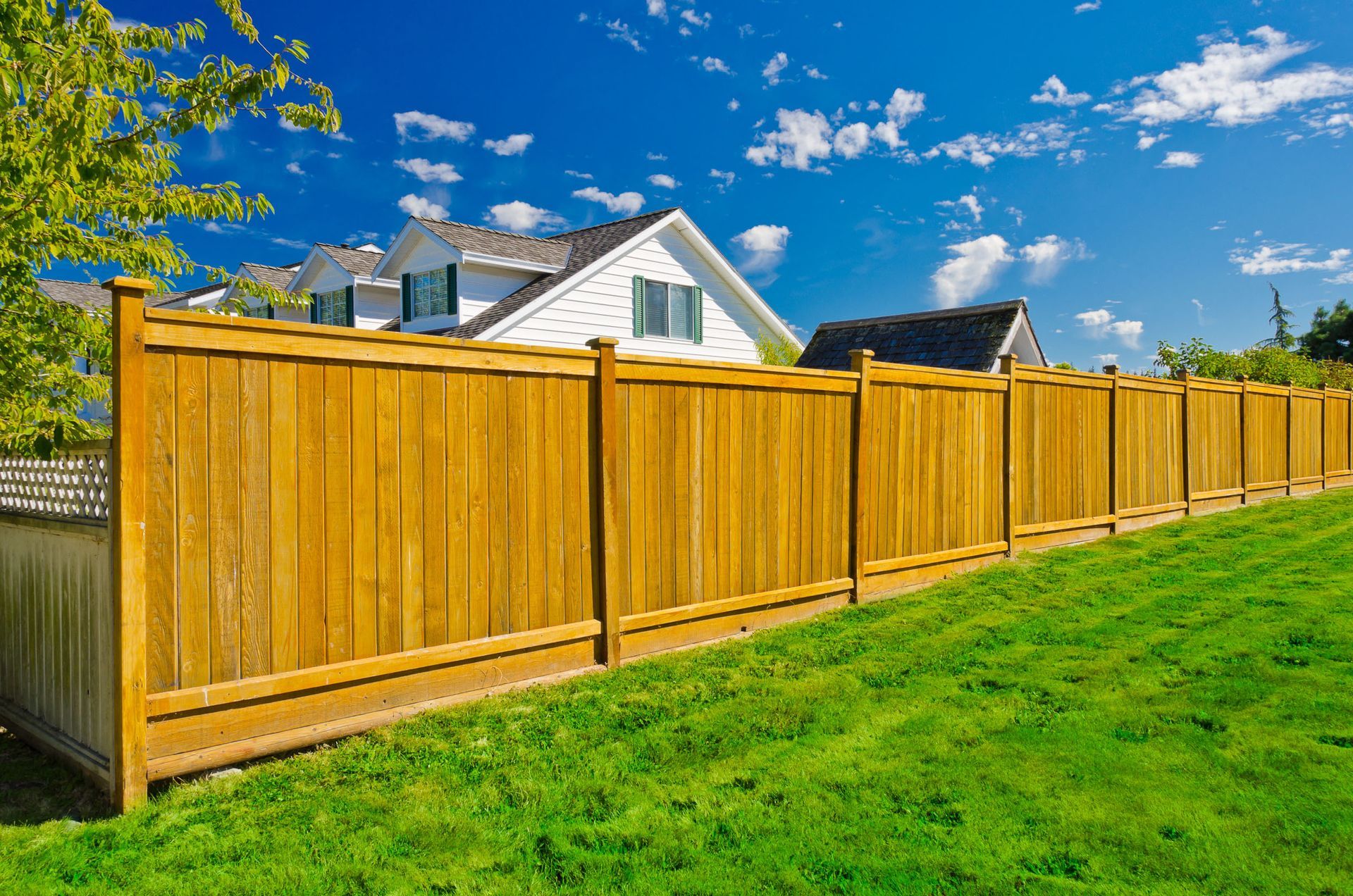All Categories
Featured
Choosing the best secure fencing product for your residential or commercial property can be a complicated task with the variety of choices readily available. Whether you're intending to raise protection, improve personal privacy, or improve the curb charm of your home or business, the best fence can offer multiple purposes. In this guide, we'll discover various secure fencing materials, their advantages, and which choices may be best suited for various demands.
Benefits:
All-natural Feel And Look: Timber supplies a cozy, all-natural visual that enhances gardens, yards, and various other outdoor spaces. Customizable: You can discolor or paint timber fence any shade, permitting countless style possibilities. Personal privacy and Safety and security: When created as a strong panel, a timber fence can supply excellent personal privacy and safety and security. Drawbacks:
Upkeep Required: Timber fences require regular upkeep to stop rot, bending, and damage from bugs like termites. At risk to Weather: Direct exposure to snow, rainfall, and sun can deteriorate the top quality of the timber over time, which means you might require to reseal or change boards. Best For: Homeowners searching for a standard, personalized fencing with a natural appearance.
Advantages:
Long Lasting and Lasting: Plastic is immune to the weathering that wood fencings experience, and it won't warp, split, or discolor. Reduced Upkeep: Unlike wood, vinyl doesn't call for discoloration or securing. Cleansing it is as straightforward as washing it with water. Variety of Styles: Vinyl fence is offered in many designs and colors, and some variations also imitate the look of wood. Disadvantages:
Greater First Price: Plastic fencings can be much more pricey to set up contrasted to various other products, such as wood or chain web link. Prone to Cracking: While resilient, vinyl can come to be breakable and crack in really cold temperature levels or when struck with pressure. Limited Modification: Unlike timber, plastic can not be conveniently changed, so your design alternatives are a lot more limited. Best For: House owners who focus on low upkeep and long-term resilience, and who agree to invest in a greater first cost.
Benefits:
Affordable: One of the most budget-friendly fence alternatives, making it perfect for big buildings or locations calling for considerable coverage. Reduced Upkeep: Wire mesh fence need little to no maintenance beyond occasional cleaning and repair services. Long lasting and Secure: While not visually enticing, chain link fencings are strong, hard to climb, and offer a high degree of safety. Negative Aspects:
![]()
Lack of Personal privacy: A chain link fencing doesn't provide much privacy unless you add slats or other modifications. Industrial Look: The wire mesh may not enhance all property types, particularly residential homes or locations calling for a visual touch. Best For: Big properties or locations where spending plan is a concern, or for those that need a strong, secure border without the need for personal privacy.
Benefits:
Solid and Secure: Steel fencings supply exceptional safety, as they are hard to climb and offer a durable barrier versus intruders. Long Life expectancy: Steel fences can last for years, specifically when treated for corrosion and corrosion resistance. Elegant Visual: Wrought iron and steel fences include a classy, timeless look to homes, yards, or commercial residential or commercial properties. Disadvantages:
Expensive: Steel fences, especially functioned iron, often tend to have a higher in advance price than various other products. Upkeep Demands: Steel and functioned iron fencings might corrosion in time otherwise effectively kept, calling for regular paint or therapy. Limited Personal privacy: Metal fencings are generally open, so they do not supply the personal privacy that solid fencings like wood or vinyl can give unless combined with other products. Best For: Those seeking a high-security, attractive choice with a long life-span, specifically for upscale or high-traffic locations.
Advantages:
![]()
Low Maintenance: Composite fencing needs no painting, discoloration, or sealing. It's very easy to clean with simply soap and water. Longevity: Immune to rot, parasites, and weather, composite fencings last longer than traditional timber. Eco-Friendly: Several composite products are made from recycled wood and plastic, minimizing ecological effect. Downsides:
Costly: The initial price of composite secure fencing can be greater than timber or plastic. Limited Personalization: While available in various colors, composite fences do not use as several design options as timber. Heavy: Compound products are usually heavier than various other sorts of fencing, which can make setup more tough. Best For: Those who want a low-maintenance, eco-friendly alternative that integrates the look of wood with boosted toughness.
Verdict. Choosing the best fence product for your building relies on a variety of aspects, including your budget, visual choices, privacy requirements, and maintenance determination. Whether you choose for the ageless allure of wood, the low-maintenance advantages of vinyl, the strength of steel, or the environment-friendly toughness of composite, picking the finest fencing needs cautious consideration of your residential property's one-of-a-kind requirements. By comprehending the advantages and restrictions of each material, you can make an informed choice that offers long-lasting value and contentment for your residential or commercial property.
- Wood Fence. Timber secure fencing is a classic choice for several property owners due to its natural elegance, convenience, and ability to mix flawlessly with various building styles. Offered in a range of styles, including picket, personal privacy, and cattle ranch rails, wood can be personalized with paint or tarnish to match your desired aesthetic.
Benefits:
All-natural Feel And Look: Timber supplies a cozy, all-natural visual that enhances gardens, yards, and various other outdoor spaces. Customizable: You can discolor or paint timber fence any shade, permitting countless style possibilities. Personal privacy and Safety and security: When created as a strong panel, a timber fence can supply excellent personal privacy and safety and security. Drawbacks:
Upkeep Required: Timber fences require regular upkeep to stop rot, bending, and damage from bugs like termites. At risk to Weather: Direct exposure to snow, rainfall, and sun can deteriorate the top quality of the timber over time, which means you might require to reseal or change boards. Best For: Homeowners searching for a standard, personalized fencing with a natural appearance.
- Plastic (PVC) Fence. Vinyl fencings have actually expanded in appeal as a result of their low maintenance and resilience. Made from synthetic plastic products, plastic fences are immune to rot, fading, and parasites, offering a tidy, modern-day appearance with little maintenance.
Advantages:
Long Lasting and Lasting: Plastic is immune to the weathering that wood fencings experience, and it won't warp, split, or discolor. Reduced Upkeep: Unlike wood, vinyl doesn't call for discoloration or securing. Cleansing it is as straightforward as washing it with water. Variety of Styles: Vinyl fence is offered in many designs and colors, and some variations also imitate the look of wood. Disadvantages:
Greater First Price: Plastic fencings can be much more pricey to set up contrasted to various other products, such as wood or chain web link. Prone to Cracking: While resilient, vinyl can come to be breakable and crack in really cold temperature levels or when struck with pressure. Limited Modification: Unlike timber, plastic can not be conveniently changed, so your design alternatives are a lot more limited. Best For: House owners who focus on low upkeep and long-term resilience, and who agree to invest in a greater first cost.
- Chain Web Link Fencing. Chain web link fencings are a cost-effective option for those looking for protection without the high price tag. Normally made use of in commercial buildings, parks, and huge houses, chain link fences supply an effective limit and are offered in a variety of heights.
Benefits:
Affordable: One of the most budget-friendly fence alternatives, making it perfect for big buildings or locations calling for considerable coverage. Reduced Upkeep: Wire mesh fence need little to no maintenance beyond occasional cleaning and repair services. Long lasting and Secure: While not visually enticing, chain link fencings are strong, hard to climb, and offer a high degree of safety. Negative Aspects:

Lack of Personal privacy: A chain link fencing doesn't provide much privacy unless you add slats or other modifications. Industrial Look: The wire mesh may not enhance all property types, particularly residential homes or locations calling for a visual touch. Best For: Big properties or locations where spending plan is a concern, or for those that need a strong, secure border without the need for personal privacy.
- Steel Fence (Aluminum, Steel, Wrought Iron) Metal fencings, such as aluminum, steel, and wrought iron, are preferred for their safety and security, durability, and toughness. These products are commonly made use of in high-security industrial residential or commercial properties, high end houses, and those seeking an innovative, decorative look.
Benefits:
Solid and Secure: Steel fencings supply exceptional safety, as they are hard to climb and offer a durable barrier versus intruders. Long Life expectancy: Steel fences can last for years, specifically when treated for corrosion and corrosion resistance. Elegant Visual: Wrought iron and steel fences include a classy, timeless look to homes, yards, or commercial residential or commercial properties. Disadvantages:
Expensive: Steel fences, especially functioned iron, often tend to have a higher in advance price than various other products. Upkeep Demands: Steel and functioned iron fencings might corrosion in time otherwise effectively kept, calling for regular paint or therapy. Limited Personal privacy: Metal fencings are generally open, so they do not supply the personal privacy that solid fencings like wood or vinyl can give unless combined with other products. Best For: Those seeking a high-security, attractive choice with a long life-span, specifically for upscale or high-traffic locations.
- Composite Fence. Compound secure fencing combines timber fibers and plastic to create a product that resembles the look of timber but is extra long lasting and less complicated to maintain. It's a green option made from recycled materials, making it both functional and lasting.
Advantages:

Low Maintenance: Composite fencing needs no painting, discoloration, or sealing. It's very easy to clean with simply soap and water. Longevity: Immune to rot, parasites, and weather, composite fencings last longer than traditional timber. Eco-Friendly: Several composite products are made from recycled wood and plastic, minimizing ecological effect. Downsides:
Costly: The initial price of composite secure fencing can be greater than timber or plastic. Limited Personalization: While available in various colors, composite fences do not use as several design options as timber. Heavy: Compound products are usually heavier than various other sorts of fencing, which can make setup more tough. Best For: Those who want a low-maintenance, eco-friendly alternative that integrates the look of wood with boosted toughness.
Verdict. Choosing the best fence product for your building relies on a variety of aspects, including your budget, visual choices, privacy requirements, and maintenance determination. Whether you choose for the ageless allure of wood, the low-maintenance advantages of vinyl, the strength of steel, or the environment-friendly toughness of composite, picking the finest fencing needs cautious consideration of your residential property's one-of-a-kind requirements. By comprehending the advantages and restrictions of each material, you can make an informed choice that offers long-lasting value and contentment for your residential or commercial property.
Latest Posts
Exactly How We Make Flooring Easy at Carpet Interiors Floor & Home
Published Apr 20, 25
1 min read
Why Choose NAPA AutoCare? Montclare Auto Repair Is Your Trusted Choice
Published Apr 20, 25
2 min read
Full Circle Strategic Marketing - Explode Business Growth with Performance-Based Marketing
Published Apr 20, 25
2 min read
More
Latest Posts
Exactly How We Make Flooring Easy at Carpet Interiors Floor & Home
Published Apr 20, 25
1 min read
Why Choose NAPA AutoCare? Montclare Auto Repair Is Your Trusted Choice
Published Apr 20, 25
2 min read
Full Circle Strategic Marketing - Explode Business Growth with Performance-Based Marketing
Published Apr 20, 25
2 min read